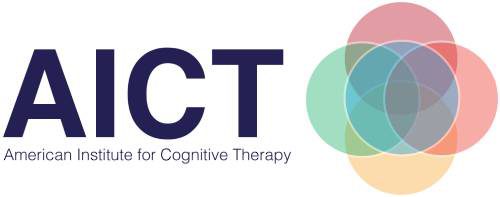Problems Addressed
General information
Cognitive-behavioral therapy is a relatively short-term, focused psychotherapy for a wide range of psychological problems, including depression, anxiety, anger, marital conflict, fears, and substance abuse. The focus of therapy is on how you are thinking (“your cognitions”), behaving and communicating today rather than on your early childhood experiences. Numerous studies have demonstrated that cognitive-behavioral therapy is as effective as medication for depression, anxiety, obsessions and other fears. Furthermore, because patients learn self-help in therapy they are often able to maintain their improvement after therapy has been completed.
Please contact our support staff to
schedule a consultation at or intake@cognitivetherapynyc.com
schedule a consultation at or intake@cognitivetherapynyc.com
- Anxiety–General Information
- Anger Management
- Bipolar Disorder
- Borderline Personality Disorder and Dialectical Behavior Therapy (DBT)
- Depression
- Eating Disorders
- Fears
- Health Anxiety and Hypochondriasis
- Insomnia
- Irritable Bowel Syndrome (IBS)
- Maternal & Paternal Mental Health
- Medical Trauma/Post-intensive Care Syndrome (PICS)
- Mindfulness and Acceptance
- Nutritional Counseling
- Obsessive-Compulsive Disorder
- Panic Attacks and Agoraphobia
- Post Traumatic Stress Disorder
- Procrastination
- Relationship Enhancement
- Resistance to Change
- Social Phobia
- Stress and Burnout
- Substance Abuse and Dependence
- Trichotillomania (hair pulling)
- Weight Control and Obesity
- Why You Worry
Evaluation of patients
When you begin cognitive-behavioral therapy, your therapist will ask you to fill out a variety of self-report forms that assess a range of symptoms and problems. These forms evaluate depression, anxiety, anger, fears, physical complaints, personality, and relationships. The purpose of this evaluation is to gather as much information on you so that you and your therapist can know quickly that kinds of problems you do (or do not) have and the degree of your problem.Evaluation of patients When you begin cognitive-behavioral therapy, your therapist will ask you to fill out a variety of self-report forms that assess a range of symptoms and problems. These forms evaluate depression, anxiety, anger, fears, physical complaints, personality, and relationships. The purpose of this evaluation is to gather as much information on you so that you and your therapist can know quickly that kinds of problems you do (or do not) have and the degree of your problem.Treatment Plans
You and your therapist will work together to develop a plan of therapy. This might include how often you need to come, the relevance of medication, your diagnosis, your goals, skill acquisition, needed changes in the way you think, behave, and communicate, and other factors.What are therapy sessions like?
Unlike other forms of therapy which are unstructured, you and your therapist will set an agenda for each meeting. The agenda might include a review of your experience in the previous session, your homework, one or two current problems, a review of what you’ve accomplished in this session, and homework for the next week. The goal is to solve problems, not just complain about them.Self-help Homework
If you went to a personal trainer at a health club, you would expect to get guidance on how to exercise when the trainer is not there. The same thing is true in cognitive-behavioral therapy. What you learn in therapy is what you practice outside of therapy on your own. Research demonstrates that patients who carry out homework assignments get better faster and stay better longer. Your self-help homework might include keeping track of your moods, thoughts and behaviors, scheduling activities, developing goals, challenging your negative thoughts, collecting information, changing the way you communicate with others, and other assignments.Aren’t my problems due to my childhood experiences?
Part of your problem may be due to how your parents, siblings and peers treated you, but your solution to your problem is what you are thinking and doing today. However, with many people we do find it useful at times to review the source of your problems and help you learn how to change the way you think about it now.Aren’t my problems due to biochemistry?
Part of your problems may be due to biochemistry, but there are many factors—such as the way you think, behave, relate and current and past life-events—that are important. Using cognitive-behavioral therapy does not preclude the use of medication. For most psychiatric disorders, there is considerable evidence that cognitive-behavioral therapy is as effective as medication. For very serious levels of depression and anxiety, we believe that it might be best to combine medication with therapy. An advantage of cognitive-behavioral therapy is that you also learn ways to solve your problems on your own.How Will I Know If I’m Getting Better?
You and your therapist can identify specific goals at the beginning of therapy—and you can modify these goals as you continue on. Then you can evaluate if you are becoming less depressed, anxious, angry, etc. You should feel free to give your therapist feedback on your progress. This feedback from you is useful in order to figure out what works and what doesn’t work.How can I learn more about cognitive-behavioral therapy?
Depending on the problems that you want to solve, your therapist can recommend a number of books or readings for you. We believe that the more you know about yourself, the better off you will be. We hope that you can learn to become your own therapist.How common is mental illness?
There is a whole branch of medicine devoted to understanding how common or prevalent various disorders are. This field is know as epidemiology, and currently it is estimated that 20% of the United States population will suffer from a mental illness during a given year. More information on the prevalence of mental illness can be found in the Surgeon General’s Report.
schedule an appointment

